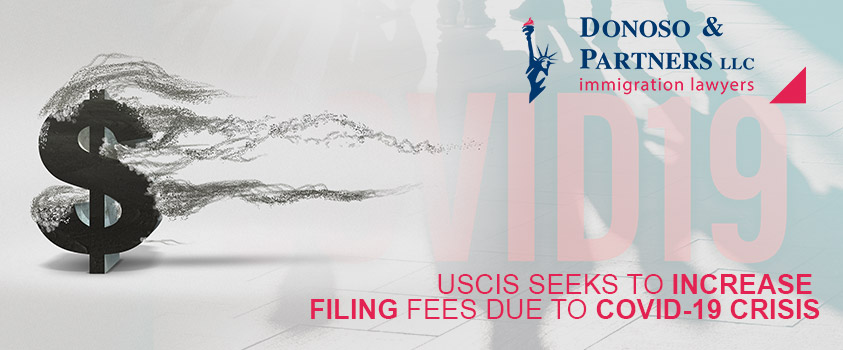Washington, D.C., May 18, 2020: US Citizenship and Immigration Services (“USCIS”) has experienced a significant reduction in new visa applications since the start of the COVID-19 crisis in March 2020. As a result, USCIS now running out of money to operate.
Funding for USCIS operations are based on filing fees collected from applicants. USCIS filing fees are intended to pay for most of the costs of running USCIS.
New visa applications have slowed down significantly due to the economic crisis triggered by the COVID-19 crises in March. Consequently, USCIS revenues are equally decreased. USCIS said in a statement that it expects its revenue will drop by about 61% through the end of the year. Nevertheless, USCIS has continued to operate in processing visa applications, though it has closed to the public for in-person interviews since March 18, 2020.
The solution recently proposed by USCIS is to raise its fees to applicants by 10% or more, and also to obtain emergency funding from Congress.
USCIS fees, however, cannot be increased without the realization that higher fees can put visa processes out of reach for lower-income immigrants, and make US employers more reluctant to spend additional funds on visa processes. Higher fees could also result in fewer visa petitions, leading to additional rounds of fee increases or additional funding from Congress.
Particularly problematic are potential increased USCIS fees for naturalization (currently $725) and certificates of citizenship (currently $1,170). Given that these visa processes are typically sought by persons who have paid US income taxes for several years, it seems that high fees for naturalization are misguided as a policy, and can act as a barrier to completing the immigration cycle.
Donoso & Partners, a leading immigration law firm based in Washington, D.C., will continue to report on developments regarding the immigration law and policy through our news section of donosolaw.com.
SCHEDULE A CONSULTATION TODAY.
Donoso & Partners, LLC provide assistance with review and advice regarding eligibility for visas to the U.S. or Canada.
